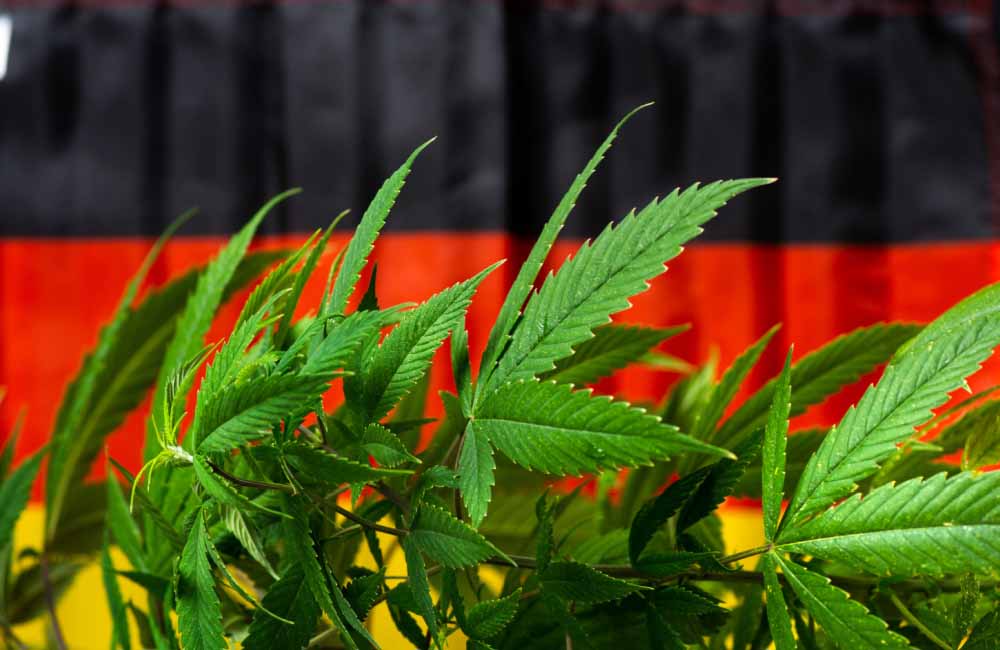Germany Cannabis Legalization Moves Forward, But Scope Is Limited
The German Cabinet recently endorsed a plan to decriminalize cannabis and allow the sale of recreational German cannabis in specific locations. It’s a step forward for one of the world’s largest countries, but also short of the original, more ambitious plans for legalization.
However, the plan, which aims to loosen cannabis regulations, paves the way for the largest member state of the European Union to decriminalize the possession of limited quantities of cannabis and grant people the ability to buy recreational marijuana in cannabis clubs.
The legislation is contingent upon parliamentary approval. Nevertheless, this government backing marks a notable advancement for Chancellor Olaf Scholz’s progressive coalition, even if it’s less than what he originally set out to do.
German Cannabis Law Could Become Legal by 2024
If approved by the German parliament, the legislation could become effective by the end of 2023. The law allows possession of up to 25 grams (about 1 ounce) of cannabis for recreational purposes. Additionally, it permits individuals to cultivate up to three cannabis plants for personal use.
Also, Germans 18 and older would be allowed to join nonprofit “cannabis clubs” that have a maximum of 500 members. The law allows each club to grow cannabis for members’ personal consumption. Individuals could buy up to 25 grams a day, with a maximum of 50 grams per month. Those under 21 would have a 30-gram limit.
The law prohibits membership in multiple clubs. The cost of the clubs is covered by membership fees. Fee amounts would vary depending on how much cannabis members use.
Other Provisions of the Proposed German Cannabis Law
The government intends to implement a prohibition on the advertisement and sponsorship of cannabis or cannabis clubs. Also, the law will prohibit consumption of recreational cannabis within a radius of 200 meters (about 656 feet) around schools, playgrounds, sports facilities and cannabis club premises.
Officials are optimistic their strategy will safeguard consumers from contaminated products and lead to a reduction in drug-related criminal activities. Health Minister Karl Lauterbach expressed his anticipation for the system to generate highly competitive prices, stating, “We believe that these regulations will effectively counter the black market,” according to the Associated Press (AP).
Lauterbach also highlighted the escalating trend in consumption and problematic usage. He said, “The existing situation simply couldn’t continue unchecked.”
Politically, the German cannabis plan came under fire from both sides of the aisle. Conservatives said that the government should not press ahead with legalization, partly because of European legal obstacles. A German judges organization also spoke out in opposition, claiming the new law will actually increase the burden on the country’s legal system.
Advocates said the new proposal did not go far enough. “What we’re getting from the health minister is overregulation, a continued stigmatization of cannabis users and a much too tight regulatory corset, which simply makes it impossible for many, many (cannabis clubs) to work,” Oliver Waack-Jürgensen, head of the Berlin-based High Ground cannabis social club founded in 2022, told AP.
What happens in Germany is of interest to Americans, where the federal government still has not legalized cannabis at the national level. Germany, which has the fourth largest economy in the world, is by far the biggest country (in terms of economy) to pursue national legalization. Canada, the world’s ninth largest economy, legalized cannabis at the national level in 2018.




